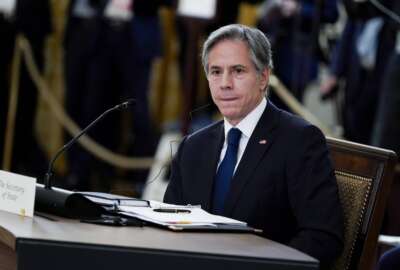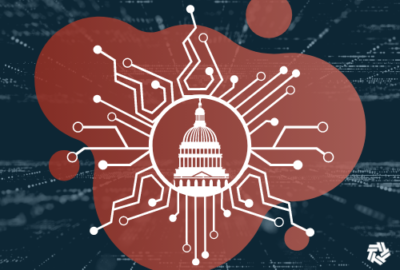
White House touts CDO Council as ‘game changer’ for meeting equity, CX goals
The White House is calling on CDOs to take on governmentwide projects that will advance the Biden administration's executive orders on government outreach to...
The Biden administration is calling on the expertise of more than 90 chief data officers across the federal government to accelerate progress on two of its top management priorities.
The White House is calling on CDOs to take on governmentwide projects that will advance the Biden administration’s executive orders on government outreach to underserved communities and improving customer experience across government.
CDOs are a relatively new addition to most agencies under the 2019 Foundations for Evidence-Based Policymaking Act. But the administration expects greater access and usability of government data will mean billions of dollars in infrastructure spending, under the Bipartisan Infrastructure Law and the Inflation Reduction Act, having a greater impact on underserved communities.
U.S. Chief Data Scientist Denice Ross said on Feb. 10 that the federal CDO Council has been a “game changer for building government capacity to use data to improve the lives and livelihoods of all Americans.”
“All of this attention on data makes my role as the chief data scientist of the United States pretty clear. It’s officially to responsibly unlock the power of data to benefit all Americans — the operative word here is, of course, benefiting all Americans,” Ross said at the CDO Council’s public meeting. “Equitable data is a perfect next step for delivering on the promise of open data.”
Ross said the administration is developing a progress report on how agencies are making equity-based improvements in their data. In a “sneak preview” of those findings, she said agencies are hiring more data experts and putting their data teams to work on equity assessments.
Ross said those equity assessments help agencies determine whether their public-facing programs benefit underserved communities.
“This is not just data for data’s sake, it’s about turning data into action that results in more equitable outcomes for the American people,” she said.
Ross said the administration, through its Equitable Data Working Group, is looking to address the “asymmetry of information” the federal government collects, versus the amount of data it makes available to the public.
“When the government has data relevant to communities, but is not making it open to the public, [that] harms the public,” Ross said. “Most of the challenges we are facing as a nation are bigger than [what] the federal government can fix alone, and we need shared information to coordinate activities.”
When it comes to better use of underused data the federal government already collects, Ross said agencies are “getting their data ducks in a row,” and identifying what data sets they already have in-house.
Ross said agencies are making progress toward this goal by creating dashboards that track progress on diversity, equity, inclusion and accessibility (DEIA) goals for the federal workforce and procurement.
Agencies, for example, are using dashboards to chart progress in meeting the Biden administration’s goal of having 15% of federal contracting dollars go to small, disadvantaged businesses by fiscal 2025 — a 50% increase from recent spending levels.
“Agencies are finding that a dashboard with current data can help them align efforts across all their divisions to meet this goal,” Ross said, adding that agencies are also creating dashboards to track money spent on research grants that go to minority-serving institutions.
CDO Council Chairman Ted Kaouk, also the CDO for the Office of Personnel Management, said CDOs have been given a major role across government, despite being a relatively new addition to their agencies.
“Over the past three years, we’ve been working to build what we consider to be a new profession in the federal government and developing a foundation for it,” Kaouk said.
Kaouk said OPM is using the CDO Council’s recommendations as part of its own data strategy and developing a governmentwide federal workforce and DEIA dashboards.
To reflect its work supporting the administration’s priorities, the council has added two new strategic goals to its mission statement: creating “simple, seamless and secure customer experiences” for individuals using federal data, and advancing data ethics and equity.
“As the CDOs continue to mature their functions at their agencies, the opportunities for the council lie at the intersection of the CDO function and the other data professions in the government,” Kaouk said.
The CDO Council is also co-leading a federal data inventory project with the Interagency Council on Statistical Policy.
The organization will develop an integrated set of requirements related to several open-data policies — including the Geospatial Data Act, the Office of Management and Budget’s zero trust guidance and sections of the Evidence Act focused on expanding public access to federal data.
The Federal Geographic Data Committee and the Chief Information Security Officers Council will also participate in the data inventory project.
Kaouk said these inventories also support a wealth of data-sharing use cases helping agencies and users maintain compliance with specific data-sharing restrictions, and will be essential to implementing the new data-sharing authorities.
“We won’t be able to build the best solutions to the problems that face us in the federal data space if we solve them one at a time in siloed communities,” Kaouk said.
The Government Accountability Office, since 1997, has surveyed federal managers about their use of evidence in their work. In GAO’s latest survey in 2020, 95% of respondents reported using at least one type of evidence for their programs.
Nick Hart, president of the Data Foundation, which conducts an annual survey of federal CDOs, said CDOs are increasingly being asked to advance goals around customer experience and equity.
“Cabinet secretaries and agency heads are now talking about CDOs and calling on CDOs to do more activities. Researchers and those outside of government are now asking more questions about CDOs, and asking about access to data, and what they do with data assets,” Hart said.
The CDO Council showcased some examples of agencies using data to meet government equity and customer experience goals.
The Equal Employment Opportunity Commission, for example, created a tool in 2020 called EEOC Explorer, which pulls data collected from private-industry employers to track employment trends by race, ethnicity, sex and job category.
EEOC Deputy CDO Kimberly Essary said the agency, as the enforcer of federal anti-discrimination laws in the workplace, collects lots of aggregate data, but added the agency wasn’t presenting the data in a user-friendly format.
“For the EEOC, it’s very important that the public — and that means people who are not Ph.D. researchers — can get to our data that’s in a usable format,” Essary said.
Essary said EEOC has seen an uptick in web traffic, as well as increased media inquiries, since the launch of the EEOC Explorer tool.
“Now, the public has so many different options to slice and dice the data, it’s much more user-friendly,” she said. “We are seeing the results of this for our customers. Because the demand continues, we keep updating it.”
The Transportation Department, meanwhile, is putting together a national database of every address in the U.S. as part of its efforts to create a next-generation national 911 emergency assistance program.
Stephen Lewis, DoT’s geospatial information officer, said the agency has collected almost 70 million addresses so far. The open national database, he added, will be used for emergency response and improved citizen services.
DoT collected the address data from 37 state government partners, plus the District of Columbia, Puerto Rico and the Virgin Islands. The agency also partnered with 28 local governments and two tribal partners.
Lewis said these partnerships have allowed the agency to compile and distribute a database with limited resources.
“If you do the math on the money we spent, that’s only about 1.6 cents per address point to provide a national level data set to the nation,” Lewis said.
The Postal Service and the Census Bureau already have national addresses, but they are restricted from sharing those data sets under federal law.
Through this effort, DoT partnered with Google in the summer of 2021. The company ingested DoT’s data sets to improve Google Maps and its suite of public-facing programs.
“They have told us in meetings that it’s allowed them to make millions of edits and improvements to their dataset. That is directly passed on to the Google consumers, which is the entire general public,” Lewis said.
Copyright © 2025 Federal News Network. All rights reserved. This website is not intended for users located within the European Economic Area.
Jory Heckman is a reporter at Federal News Network covering U.S. Postal Service, IRS, big data and technology issues.
Follow @jheckmanWFED
Related Stories

State Department overhauls workforce data to track DEIA goal progress




